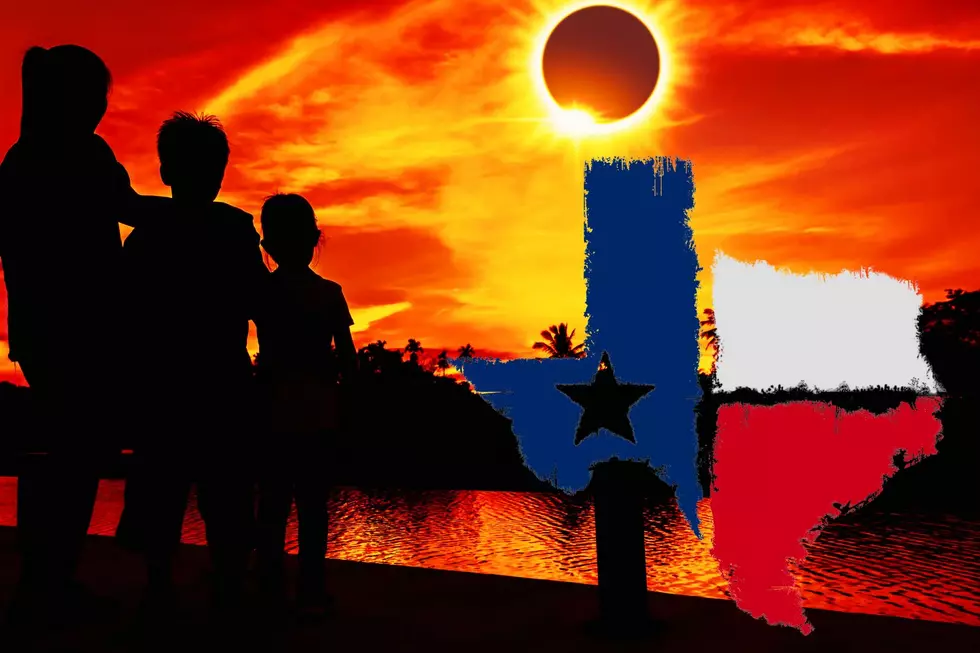
A Solar Eclipse, STDs, or an Apocalypse? Is Texas Really Ready?

Is Texas getting ready for a solar eclipse or the apocalypse and what do STDs have to do with it? And an even better question, is Texas ready for what happens on April 8, 2024?
What's different about the solar eclipse happening on April 8, 2024?
The folks at USA Today say the solar eclipse coming up on Monday, April 8, 2024, is different because 'the shadow of the moon will plunge a narrow strip of land into darkness in the middle of the day.' They say this is an extremely rare event and 'an astronomical experience like no other that will be unusually accessible to millions of people.'
Millions of those people they are referring to will be viewing said solar eclipse in Texas, which is in the path of totality. What's totality? Space.com says 'totality' is the area where 'the sun's face will be completely blocked by the moon's shadow.' The path of totality will start in Mexico and extend across Texas, Oklahoma, Arkansas, Missouri, Illinois, Indiana, Ohio, New York, Pennsylvania, Vermont, New Hampshire, and Maine.
What do STDs have to do with the solar eclipse and Texas?
This may be one of the most ridiculous things I've ever heard but I believe it. An EMT I was speaking with in Texas over the weekend says that STDs or sexually transmitted diseases are a concern and officials in Texas are expecting to see a surge in STD rates two weeks after the solar eclipse, putting an even bigger strain on local resources.
I wrote about the eclipse earlier this week and how some of the signage I saw over the weekend in East Texas on TX 69 at I-20 in Lindale felt weird. I don't know about you, it just feels kind of apocalyptical. Am I off base?
As mentioned above, I had the chance to speak to an EMT over the weekend who said that the Texas Department of Emergency Management had been meeting and preparing for the upcoming total solar eclipse for months. They're projecting that tens of thousands of people will be converging on the area causing traffic tie-ups and congestion and putting a strain on resources. That's why they're suggesting that residents stock up on things like food and fuel and fill prescriptions ahead of time. They even want you to stock up on supplies for your pets. Several schools in Texas have also preemptively canceled classes on April 8th citing safety issues.
In addition, there are warnings the solar eclipse may affect Texas' power grid. That's some scary stuff.
After I published my thoughts on the upcoming eclipse earlier this week, I received an email from a fire chief in Kendall Country, just outside of San Antonio who had some really interesting points to add, including the fact that they have been preparing for this event since 2019.
I asked what emergency management's biggest concern in their area and this is the reply I received:
"The weather is our number one concern; the issue is clear weather here and clouds in other parts of Texas. Second is the inevitable problem with people trying to leave town. Third is trying to get access to emergencies. We plan on driving the roads in our service area all three days just trying to find potential choke points. We have even scouted alternate access through private ranches to get to I-10 if the primary roads are blocked. We started in 2019 because our county emergency manager knew how bad the New Mexico and Oregon eclipses had been. "
The total solar eclipse is expected to be able to be seen in Texas from around 12:10 p.m. to 3:10 p.m. CT on April 8, 2024.
So what do you think? Are officials going too far in making dire predictions about events surrounding the eclipse? Does some of the messaging seem apocalyptical to you? One thing is for sure, I think the state, as a whole, is prepared. I'd love to hear your thoughts. Shoot me a message using our free app or email me at erin.bristol@townsquaremedia.com.
Regardless of your thoughts on the subject, here are some safety guidelines from the State of Texas:
On April 8, 2024, the moon will pass over the sun in Texas from 1:30 p.m. to 1:50 p.m. Follow these safety tips to ensure a safe viewing experience:
Expect heavy traffic and sudden stops by drivers.
Be on alert for distracted pedestrians looking to the sky.
Keep your headlights on while driving, even in the daylight.
Do not wear eclipse glasses while driving.
Always keep your eyes on the road. Only view the eclipse once safely parked away from the flow of traffic.
The next total solar eclipse will not happen in North America until the year 2044.
Nightmare Drives: Counties With The Worst Commutes In Texas
Gallery Credit: Stacker
LOOK: These Are The Richest Billionaires In Texas
Gallery Credit: Stacker
LOOK: Best Counties To Retire to in Texas
LOOK: These Are the Best Public Elementary Schools in Texas
Gallery Credit: Stacker
More From News Radio 710 KEEL








